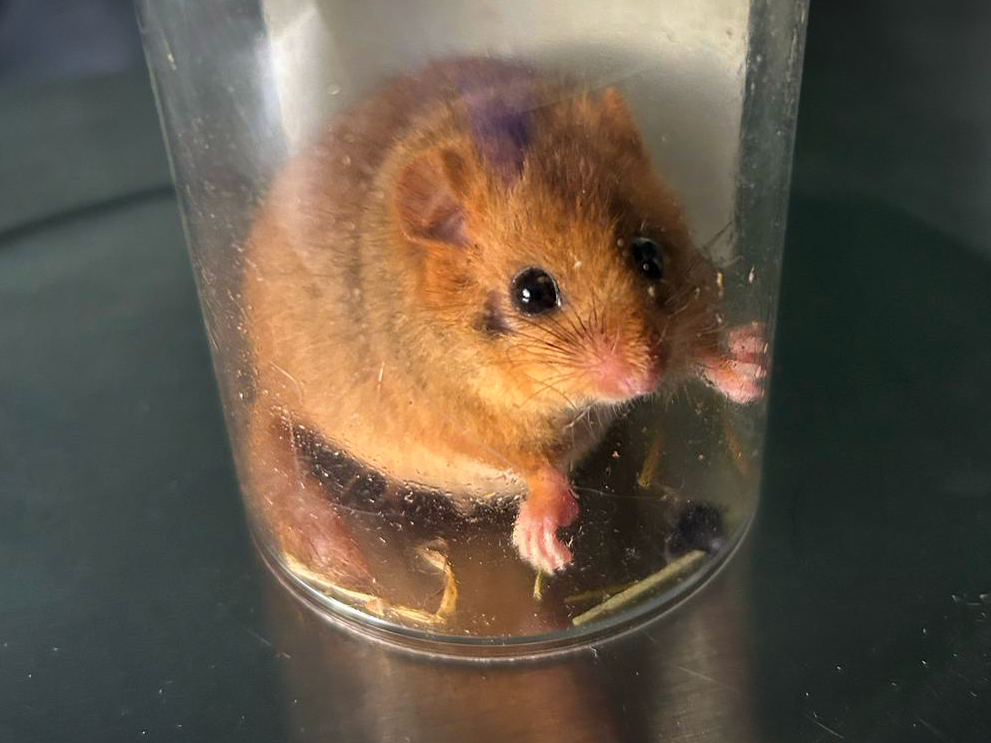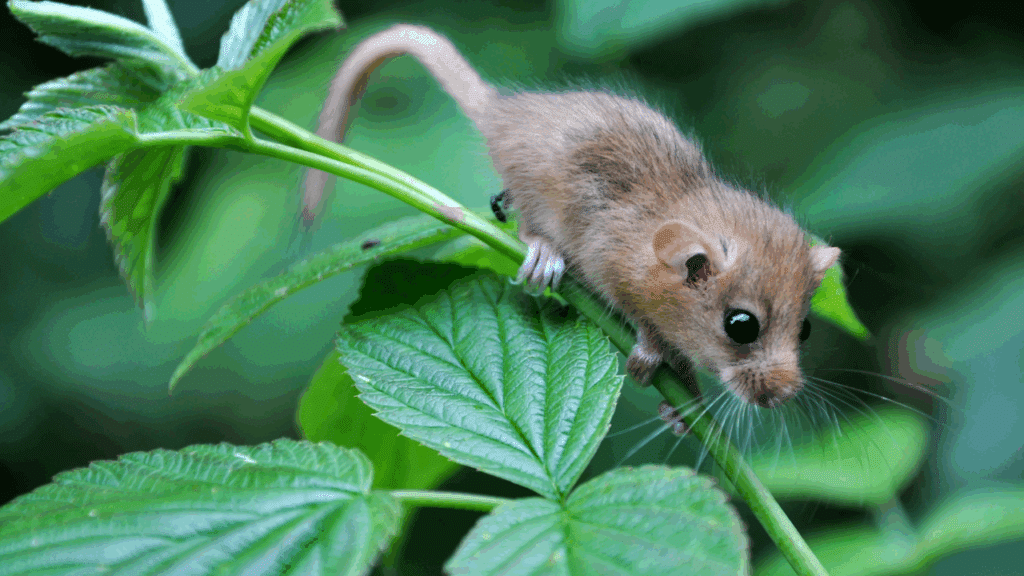
ONE OF BRITAIN’S RAREST MAMMALS GETS BOOST AS ZOOS EXPAND EFFORTS TO RECOVER NATURE
Visitors’ Gift Aid donations help fund nationwide reintroduction programme for endangered hazel dormice.
A small but significant conservation effort is taking shape in Devon, where nine golden-furred hazel dormice have arrived at Paignton Zoo as part of an ambitious ongoing conservation programme to reverse the alarming decline of one of Britain’s most endangered native mammals.
The hazel dormice – instantly recognisable by their fluffy tails and bright black eyes – will spend eight weeks in quarantine and will undergo key health checks before being released into a secret woodland location as part of People’s Trust for Endangered Species’ (PTES) annual reintroduction programme. Their arrival at the zoo is an important part of the programme as it ensures that only healthy dormice are released into the wild.
Dr Andy Bowkett, Conservation Projects and Partnerships Manager, commented:
“These tiny creatures might not seem important, but they’re a critical indicator species for our woodland ecosystems. When dormice thrive, it tells us the entire habitat is healthy with an abundance of plants and insects.”
PTES’ programme, which is part of Natural England’s Species Recovery Programme and involves several other partner organisations, has already reintroduced over 1,000 dormice into 25 different woodlands across 13 counties since 1993. This comes at a critical time. According to PTES’ State of Britain’s Dormice 2023 report, populations have crashed by 70% since 2000, with the species now thought to be locally extinct from 20 English counties since Victorian times. Annual reintroductions, alongside habitat management, landscape projects and monitoring are paramount to the species’ long-term survival.

In addition to Paignton Zoo’s latest cohort, more dormice will also be quarantined at ZSL and Twycross Zoo. Once all veterinary teams have given them a clean bill of health, the dormice will be released into a secret woodland location in June by PTES and partners.
During their eight-week quarantine period at Paignton Zoo, the dormice will receive specialised care from the zoo’s veterinary team. The process includes comprehensive health assessments, regular weighing to monitor their condition, parasite screenings, and disease testing to ensure they pose no risk to any local wildlife.
Ryan Page, Veterinary Services Manager for Paignton Zoo, commented:
“Our veterinary work is crucial to the success of PTES’ reintroduction programme. We need to be certain that every dormouse we release is not only healthy itself but also won’t introduce any pathogens that could harm existing wildlife.”
The dormice reintroduction programme reflects a growing emphasis on reintroducing native species with the help of UK zoos. Paignton’s sister organisation, Newquay Zoo, recently announced its participation in a European lynx rewilding programme – a striking contrast in scale but united by the same conservation philosophy.
Andy continued:
“From our smallest native mammals to apex predators, restoring these species to their natural habitats helps repair broken ecosystems. And it’s ordinary zoo visitors and members who make this possible through their support.”
The zoo highlights that many visitors are unaware of the significant impact of Gift Aid donations. When UK taxpayers select this option, the conservation charity can claim an extra 25p for every pound from the government at no additional cost to the donor. These funds directly support vital conservation efforts like PTES’ dormouse reintroduction programme – a simple choice that makes an enormous difference to many species that desperately need help.
While the dormice will remain behind the scenes during their quarantine period, the conservation charity is encouraging visitors to follow the animals’ journey on social media – and to consider adding Gift Aid to their admission tickets or memberships.
For visitors to Paignton Zoo interested in supporting this work, simply selecting the Gift Aid option when purchasing tickets or memberships ensures a direct contribution to conservation initiatives like the dormice reintroduction programme.
Who else is involved?

Managed by People’s Trust for Endangered Species since 2000, the annual dormouse reintroductions are part of Natural England’s Species Recovery Programme and the reintroduction day is the culmination of months of hard work by several partner organisations, including the Common Dormouse Captive Breeders Group (including Wildwood Trust), Paignton Zoo, ZSL and Twycross Zoo. This year, Bradgate Park, The Leicestershire & Rutland Wildlife Trust, the Leicestershire & Rutland Mammal Group, and the National Forest have all been instrumental in making the woodland release site suitable for dormice and together will provide local volunteers to help the dormice settle into their new home. They will also continue long-term monitoring to ensure the population thrives.
Protected under the Wildlife and Countryside Act 1981 and listed as a priority species in the UK Biodiversity Action Plan, the hazel dormouse faces multiple threats from habitat loss and fragmentation to climate change. Conservationists hope that coordinated reintroduction programmes like this one can help establish viable populations and prevent the species’ extinction in Britain.


